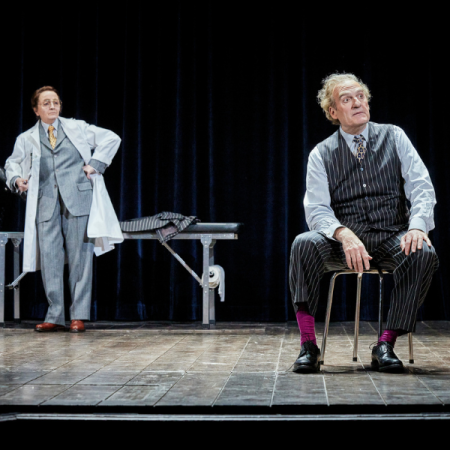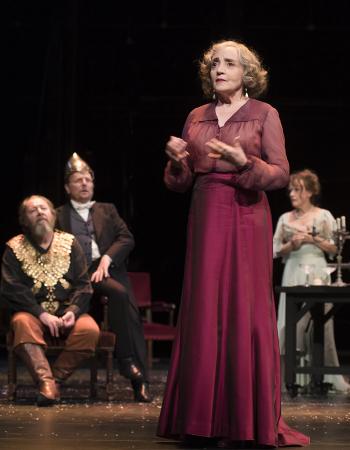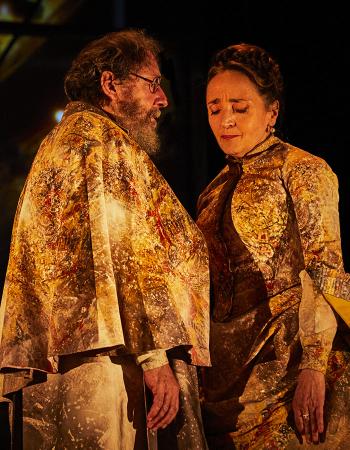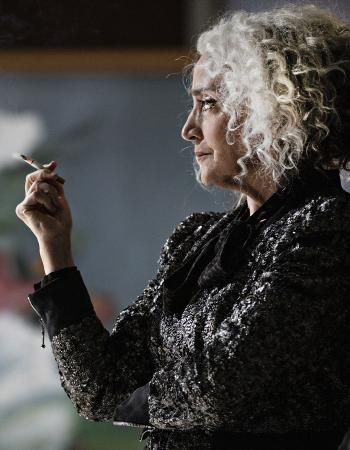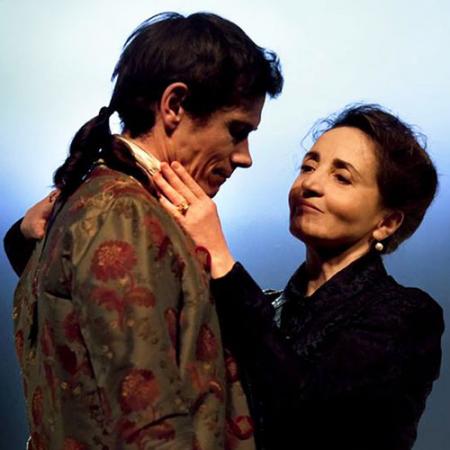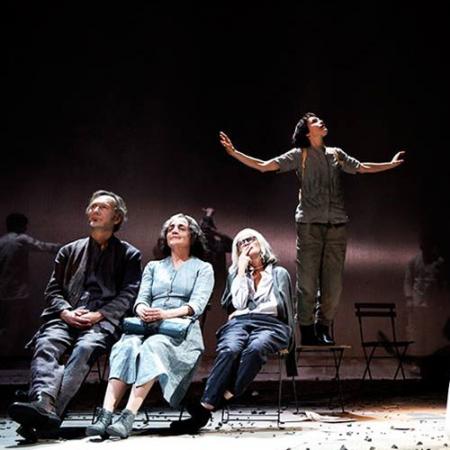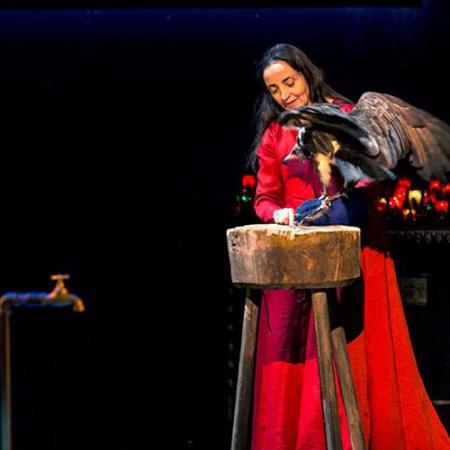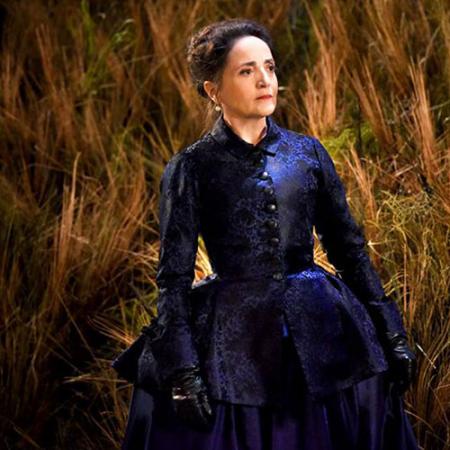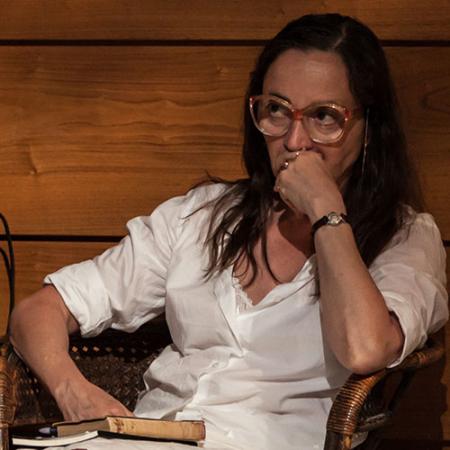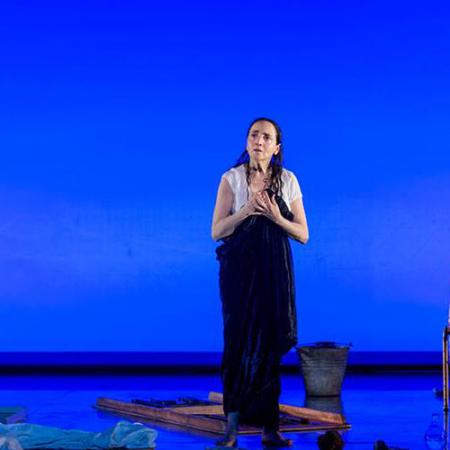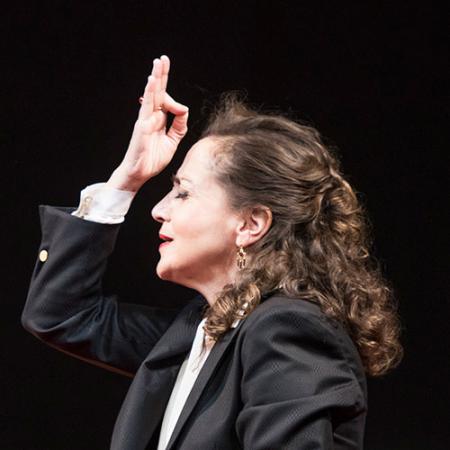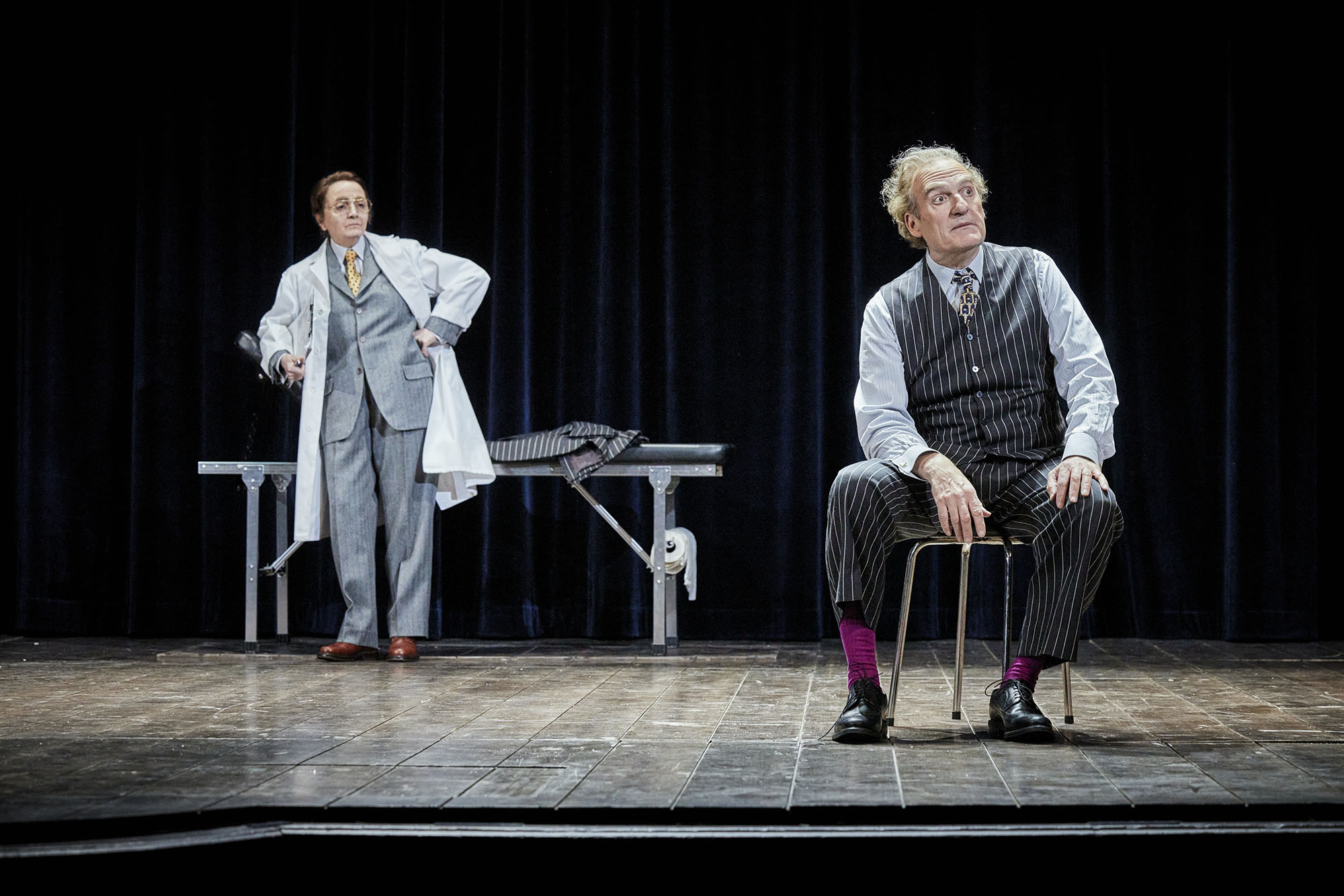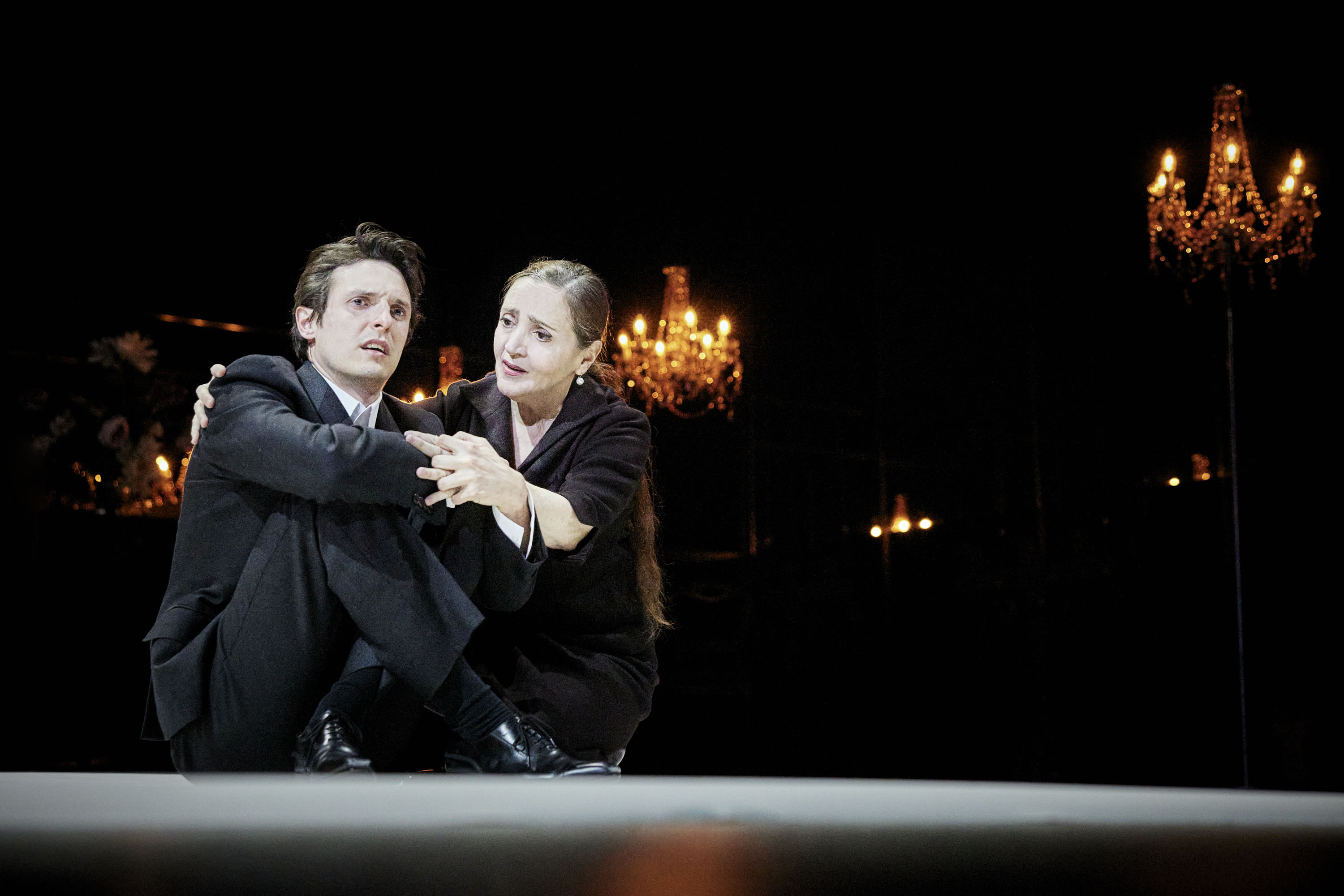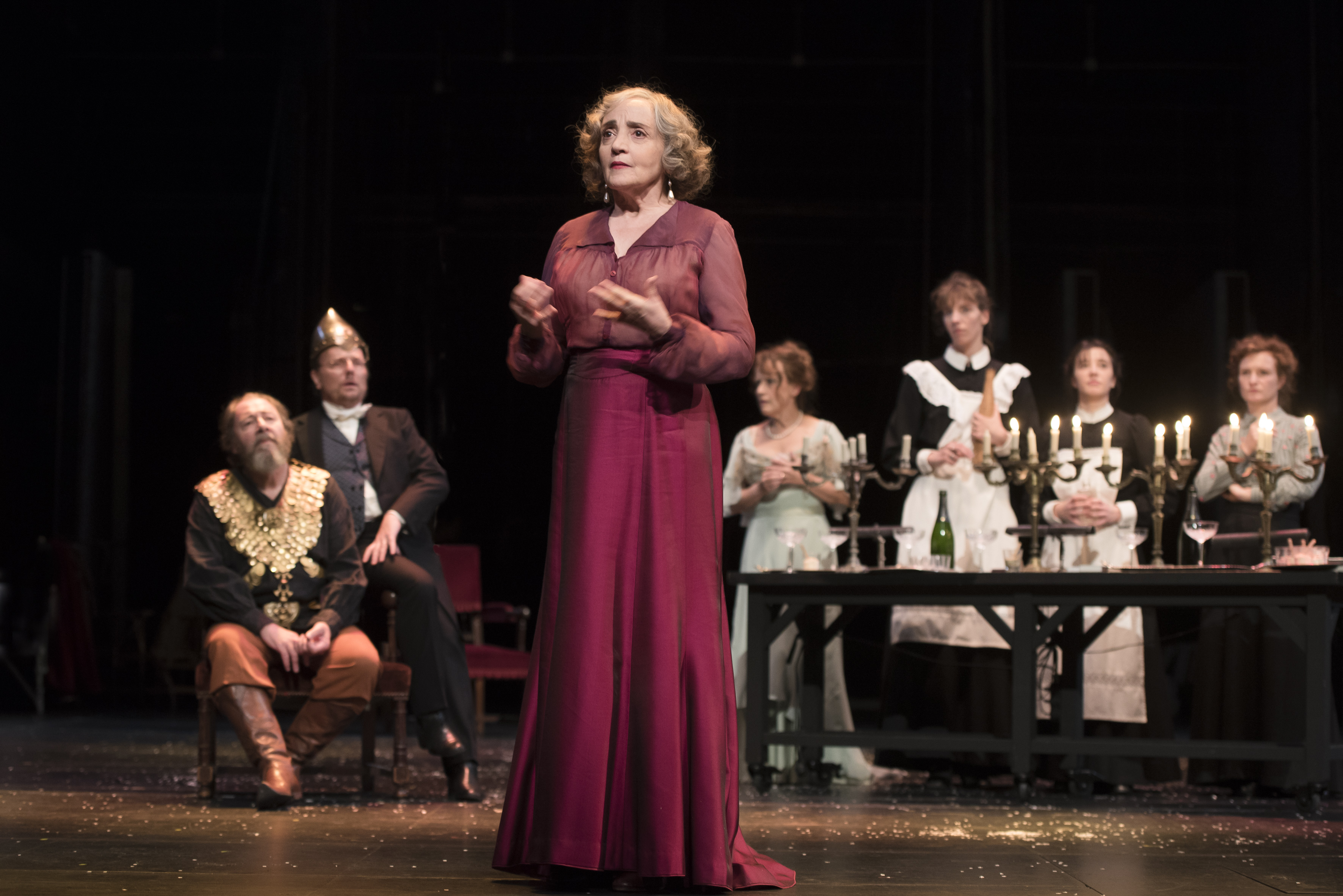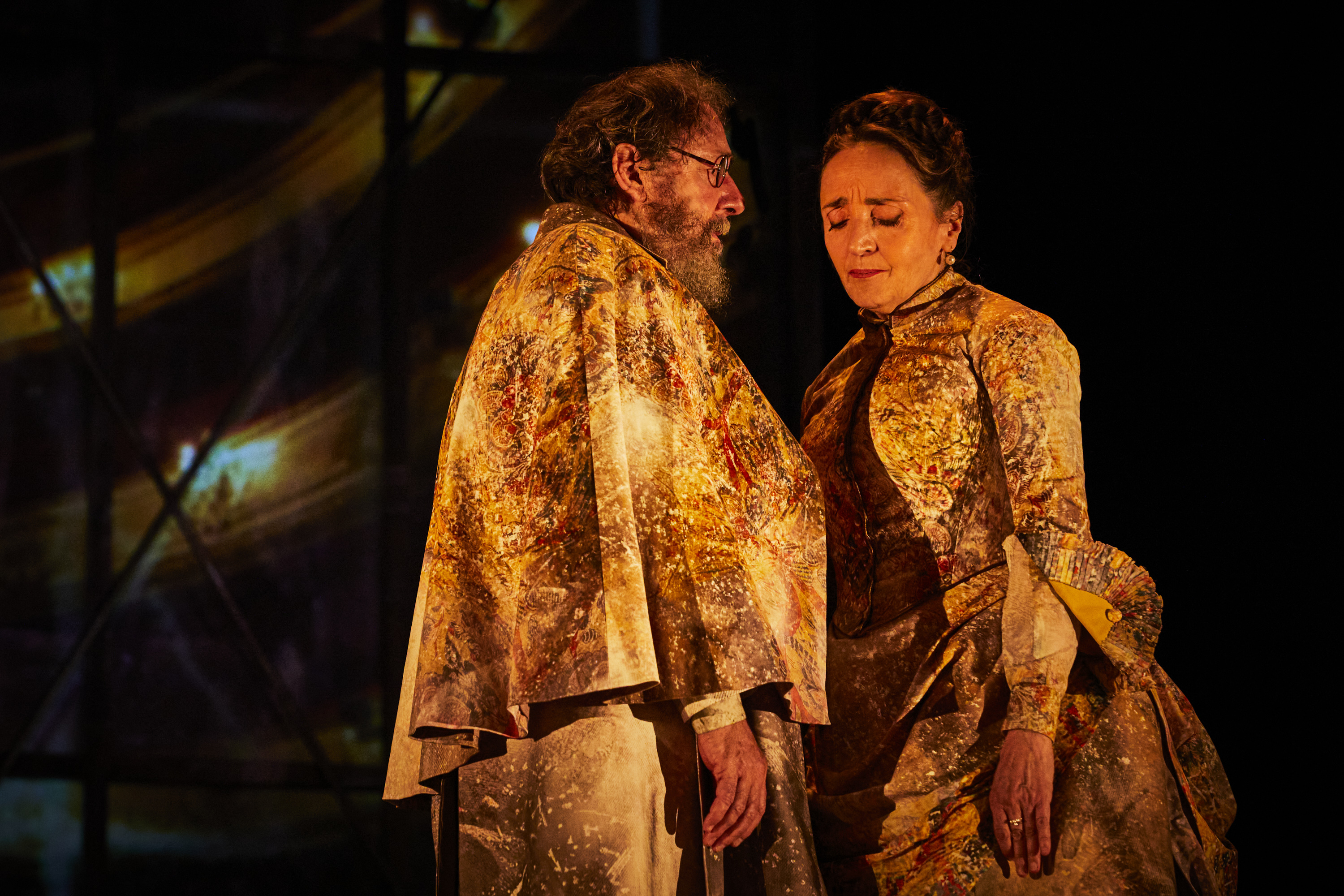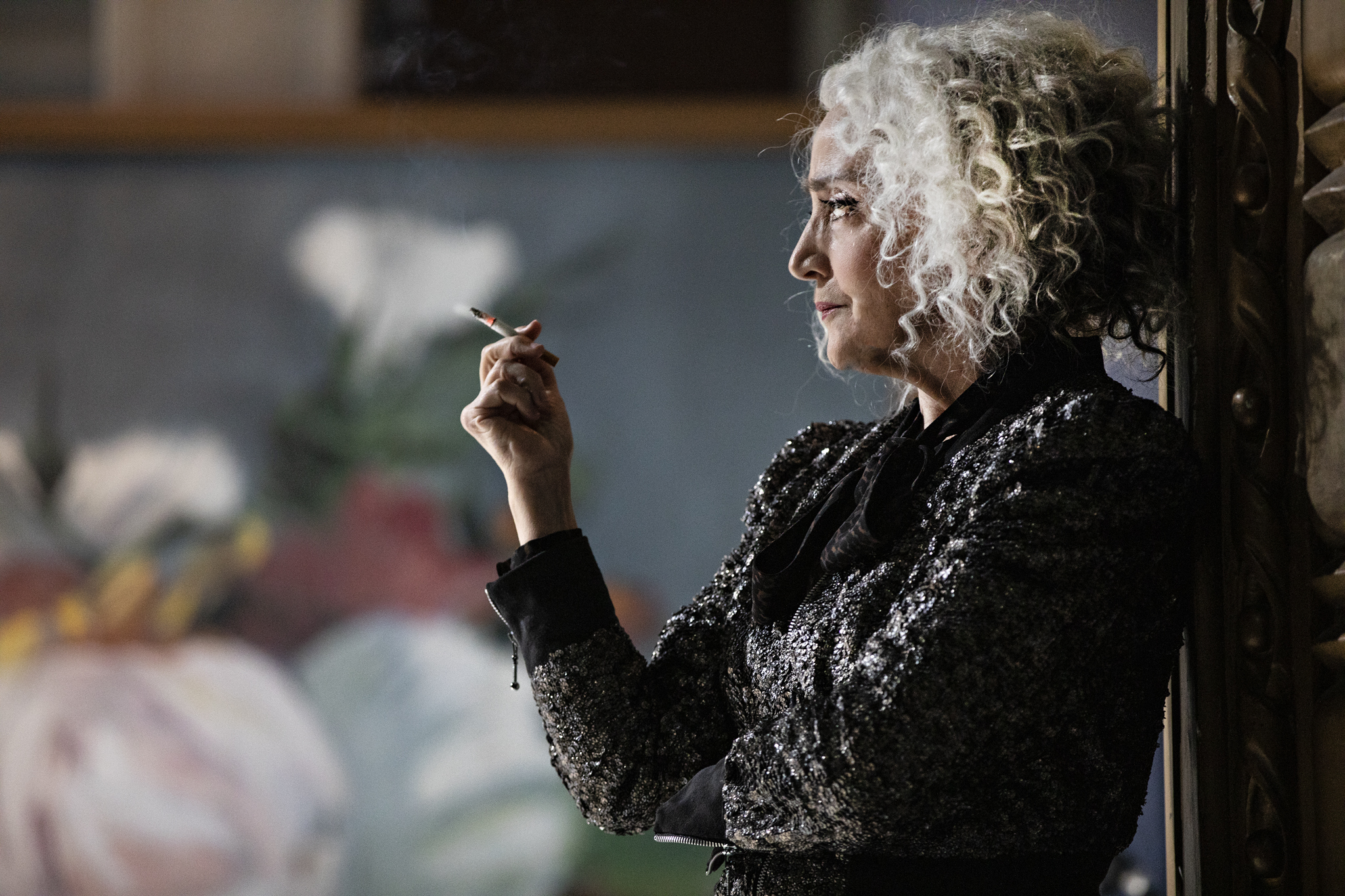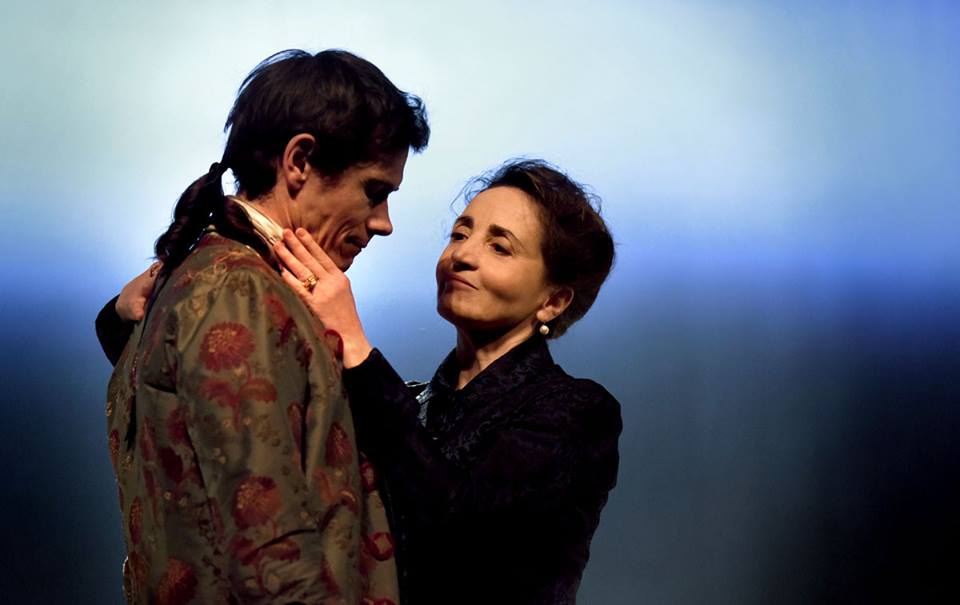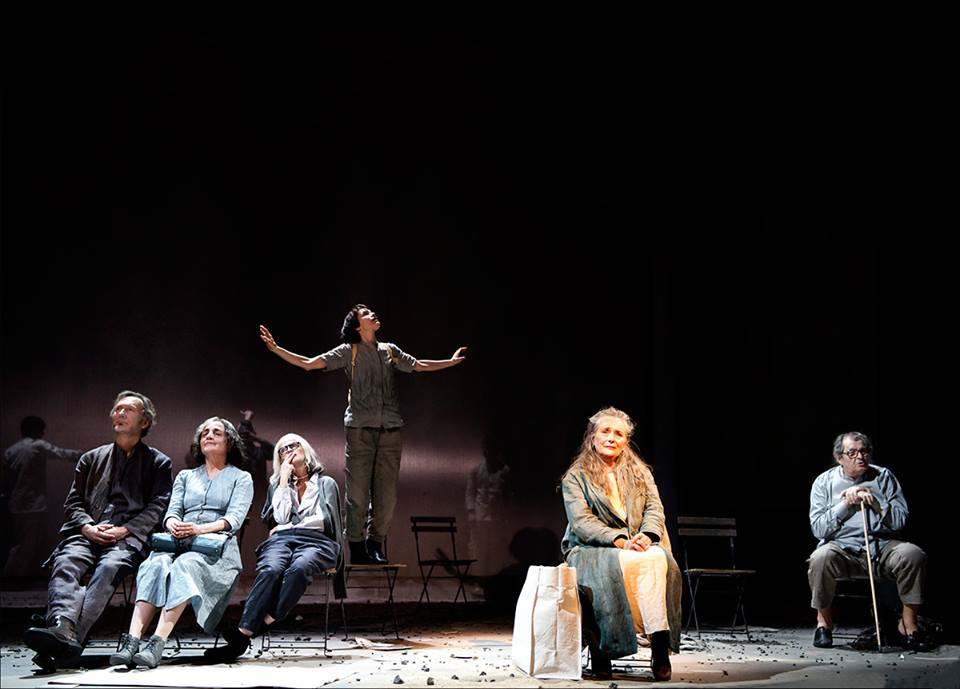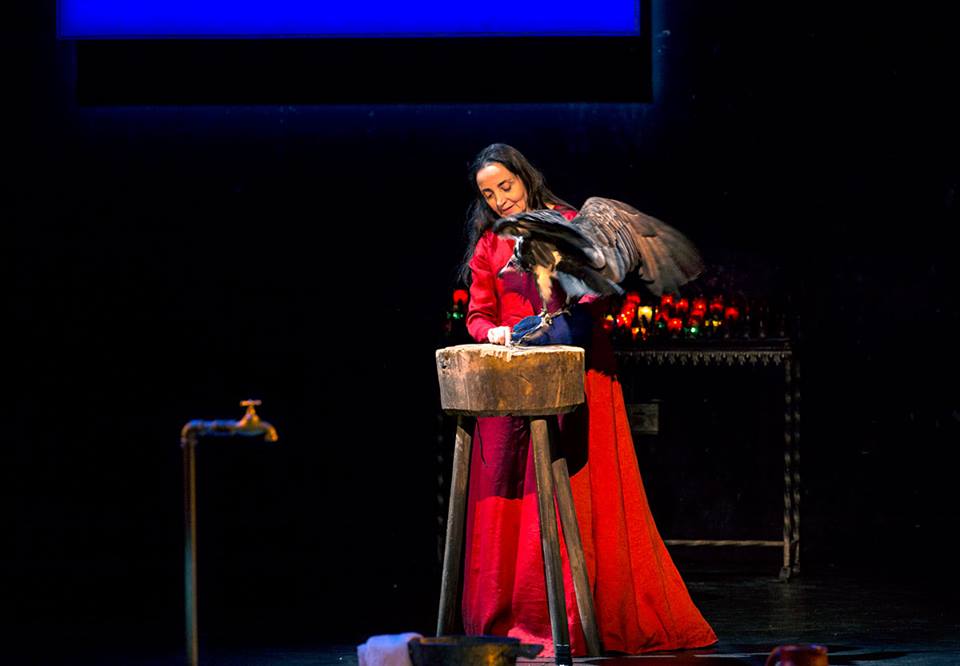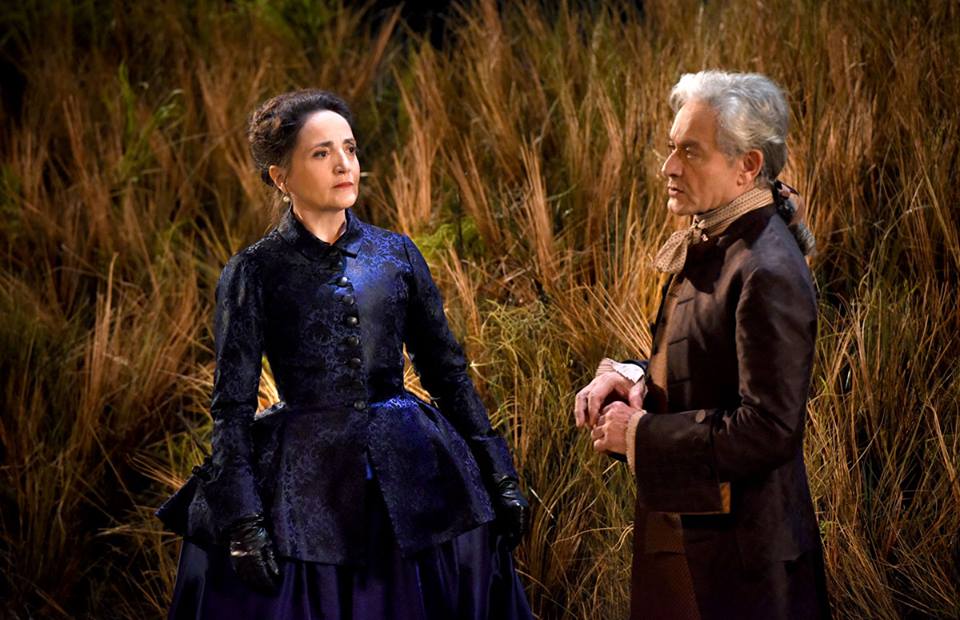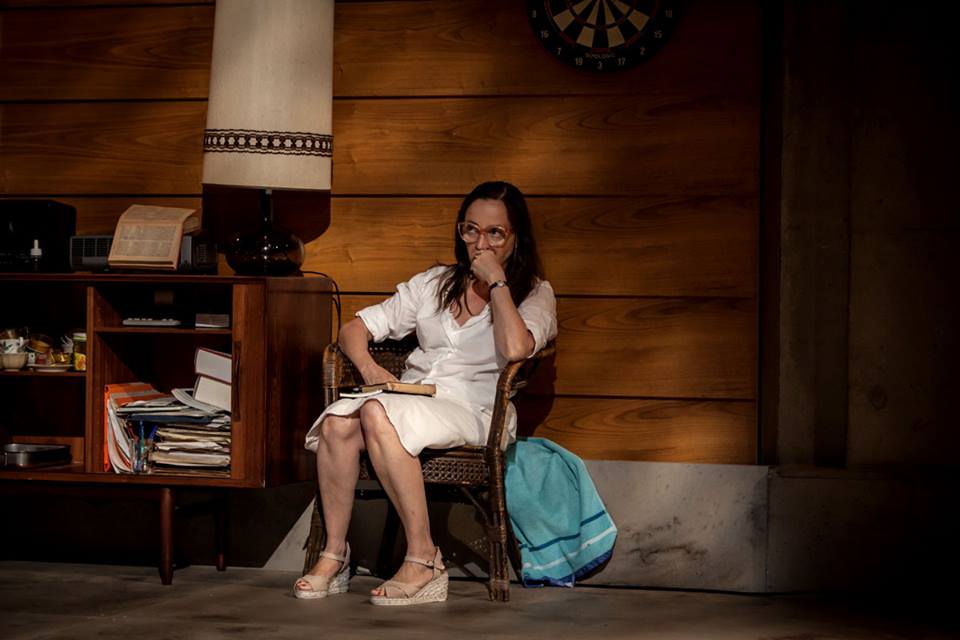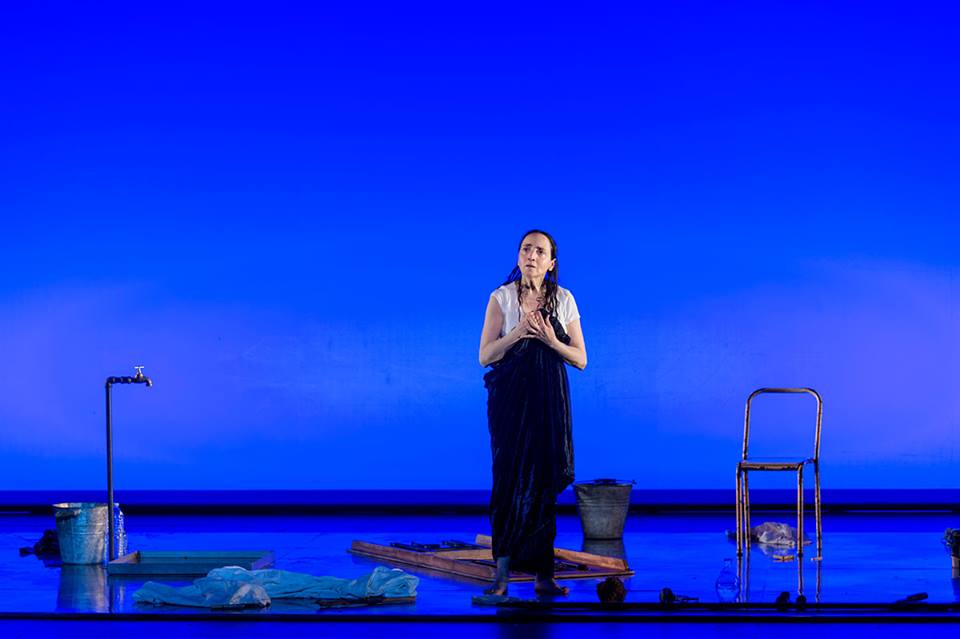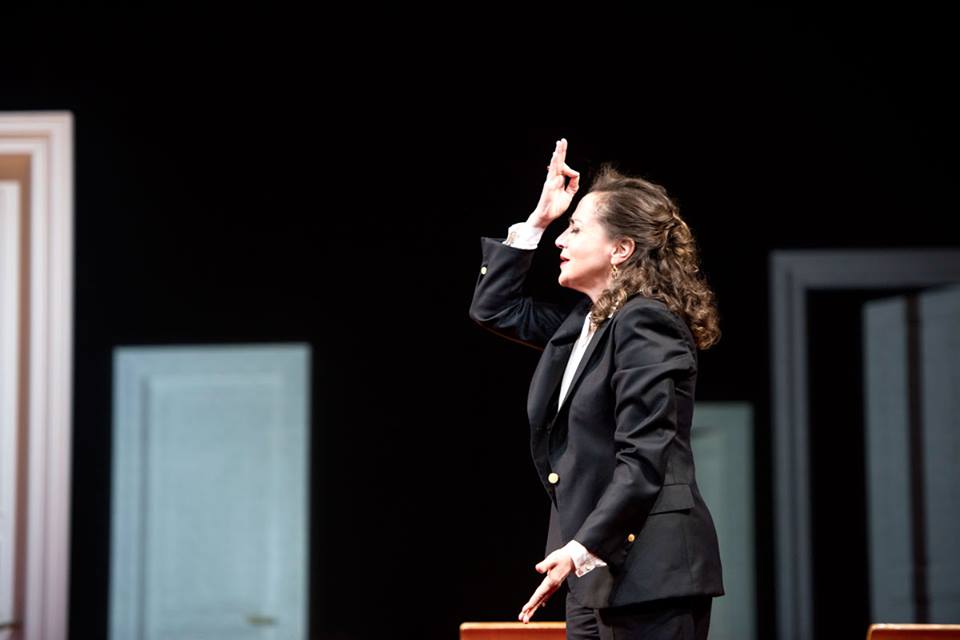Dominique
Blanc
538e sociétaire
Dominique Blanc was part of the Cours Florent’s first Classe Libre. Pierre Romans was among the teachers who trained her. Patrice Chéreau noticed her and cast her in his adaptation of Ibsen’s Peer Gynt at the Villeurbanne Théâtre national populaire in 1981. This was the beginning of a fruitful partnership on film, with La Reine Margot and Those Who Love Me Can Take the Train (Ceux qui m’aiment prendront le train), for which she won the 1998 César Best Supporting Actress, as well as in theater where he directed her in Les Paravents by Genet, Phèdre by Racine and La Douleur by Duras. For the latter, she won the Molière Best Actress Award in 2010.
Deeply committed to public theater, Dominique Blanc performed in plays in numerous venues, such as in Schnitzler’s The Distant Land (Terre étrangère) by Luc Bondy at the Théâtre Nanterre-Amandiers; Büchner’s Woyzeck by Jean-Pierre Vincent at the Théâtre du Rond-Point and, by the same director, in Beaumarchais’ The Marriage of Figaro (Le Mariage de Figaro) at the Théâtre national de Chaillot. In 1988, Antoine Vitez, its director at the time, cast her in Molière’s Le Misanthrope in which she played at the same time asin Jean Métellus's Anacaona. In 1997, Deborah Warner cast her as her Norah Helmer in Ibsen’s Doll House at the Odéon-Théâtre de l’Europe, for which she won the Molière Award for Best Actress. Marc Paquien directed her in Goldoni’s La Locandiera at the Théâtre des Célestins in Lyon, while Christine Letailleur directed her in The Dangerous Liaisons (Les Liaisons dangereuses) by Choderlos de Laclos at the Théâtre national de Bretagne. In 2016, she was presented with another Molière Best Actress Award for her interpretation of Madame de Merteuil.
Additionally, in 2005 she recited in Mozart’s Die Zauberflöte (La Flûte Enchantée) as staged by La Fura Dels Baus at the Opéra national de Paris, and, in 2012, interpreted the title role in Stravinsky’s Persephone as envisaged by Peter Sellars in Madrid.
At the same time, Dominique Blanc has had an equally prolific career on film with alongside directors such as Claude Chabrol on Story of Women (Une affaire de femmes), James Ivory on A Soldier’s Daughter Never Cries, Claude Sautet on A Few Days with Me (Quelques jours avec moi), Lucas Belvaux on the Trilogy: An Amazing Couple (Un couple épatant), On the Run (Cavale) and After Life (Après la vie). She also filmed with Michel Piccoli in The Black Beach (La Plage noire), Safy Nebbou in Dumas (L’Autre Dumas), Philippe Ramos in Mad Love (Fou d’amour), Danielle Arbid in Parisienne (Peur de rien), Katel Quillévéré in Heal the Living (Réparer les vivants), as well as with Mehdi Idir and Grand Corps Malade in Patients. In 1990 she was presented with the César Award for Best Supporting Actress for Louis Malle’s May Fools (Milou en mai), and again in 1992 for Régis Wargnier’s Indochine. In 2001, she won the Best Actress César for Rock Stéphanik’s Stand By. In 2008, she won the Best Female Performance Award at the Venice Mostra for The Other One (L’Autre) by Pierre Trividic and Patrick Mario Bernard. On television, Nina Companeez directed her in L’Allée du Roi and In Search of Lost Time (À la recherche du temps perdu), Claire Devers in Le Pendu, and Joël Farges in Alexandra David-Néel: J’irai au pays des neiges.
Dominique Blanc has been pensionnaire of the Comédie-Française since 2016. She made her debut playing Agrippine in Racine’s Britannicus by Stéphane Braunschweig. In 2017, she reunited with Deborah Warner for The Testament of Mary by Colm Tóibín. Clément Hervieu-Léger cast her as the Marquise in Marivaux’s Le Petit-Maître corrigé, while Julie Deliquet cast her as Maria Vasilyevna Voynitzkaya in Vania (after Uncle Vanya) by Chekhov. In 2018, she played in Poussière, a play written and directed by Lars Norén.
Her Portrait d'actrice has been reveal during the first Nuit du jeu broadcasted on decembre 20, 2022. The interveiw is available on YouTube.
Dominique Blanc is Knight of the Order of the Legion of Honour (Chevalier de l’ordre de la Légion d’honneur).
During the 2018/2019 season, she will be playing in Fanny et Alexandre after Bergman directed by Julie Deliquet, in Électre / Oreste by Euripides directed by Ivo van Hove and in the rerun of Racine’s Britannicus by Stéphane Braunschweig.
At the Comédie-Française
2025-2026
-
by Molière directed by Ivo Van Hove
Dorine, suivante
La Villette
-
directed by Françoise Gillard
-
based on the life and work of John Cassavetes and Gena Rowlands texte and directed by...
Pauline Kael, critique de cinéma ; Ed, producteur et Lelia Goldoni, actrice
Petit Saint-Martin
2024-2025
-
Lars Norén : Journal d'un écrivain...
Lecture d'extraits par Françoise Gillard et Dominique Blanc présentée par Amélie Wendling
Vx-Colombier
-
C’est lundi au Vieux-Co : Prendre...
Discussion and reading with Claude Mathieu, Clotilde de Bayser et Hervé Pierre Led by...
Vx-Colombier
-
by Constance Meyer, Agathe Peyrard and Sébastien Pouderoux based on the life and work of...
Pauline Kael, critique de cinéma ; Ed, producteur et Lelia Goldoni, actrice
Vx-Colombier
2023-2024
-
Portrait d'actrice : Dominique Blanc
PARADOXE(S) The motto, Simul et singulis, instantly places them at the heart of a...
Studio
-
adapted from Fiodor Dostoïevski Adapted by Erwin Mortier Translate by Marie...
Varvara Pétrovna Stavroguina, propriétaire terrienne, soutien et amie de Stépane...
Richelieu
-
Scène imaginaire de Dominique Blanc
Lectures et témoignages
Vx-Colombier
-
Public reading
Vx-Colombier
-
ON TOUR / Le Tartuffe ou l'Hypocrite
by Molière Directed by Ivo van Hove
Dorine, suivante
On tour
2022-2023
-
artistic director Amélie Wendling
Vx-Colombier
-
by Tony Kushner directed by Arnaud Desplechin
Le Rabbin Isidor Chemelwitz, Henry, Hannah Pitt, Ethel Rosenberg, Alexis...
Richelieu
-
by Marcel Proust Adapted and directed by Christophe Honoré
la Marquise de Villeparisis
Richelieu
-
by Molière Directed by Ivo van Hove
Dorine, suivante
Richelieu
2021-2022
-
by Molière Directed by Ivo van Hove
Dorine, suivante
Richelieu
-
d'Ingmar Bergman Mise en scène Julie Deliquet
Helena Ekdahl, veuve, ancienne comédienne
Richelieu
-
d'après Fiodor Dostoïevski Mise en scène Guy Cassiers
Varvara Pétrovna Stavroguina, propriétaire terrienne, soutien et amie de Stépane...
Richelieu
2020-2021
-
d'après Marcel Proust Adaptation et mise en scène Christophe Honoré
la Marquise de Villeparisis
Théâtre Marigny
2019-2020
-
Dominique Blanc / Annie Ernaux
The Actors’ Attic
Richelieu
-
by Tony Kushner directed by Arnaud Desplechin
le Rabbin Isidor Chemelwitz, Henry, Hannah Pitt, Ethel Rosenberg, Alexis...
Richelieu
2018-2019
-
Fanny and Alexander by Ingmar Bergman Directed by Julie Deliquet
Helena Ekdhal, veuve, ancienne comédienne
Richelieu
-
by Jean Racine Directed by Stéphane Braunschweig
Agrippine
Richelieu
2017-2018
-
by Jean Racine Directed by Stéphane Braunschweig
Agrippine
Richelieu
-
by Lars Norén Directed by Lars Norén
B
Richelieu
-
Actor School
Studio
-
The Fop Reformed by Marivaux Directed by Clément Hervieu-Léger
la Marquise
Richelieu
-
The Rules of the Game based on the screenplay by Jean Renoir Directed by Christiane...
Invitée
Richelieu
-
after Uncle Vanya by Anton Tchekhov Directed by Julie Deliquet
Maria Vassilievna Voinitzkaia, mère de Vania et de la première femme du professeur
Vx-Colombier
2016-2017
-
by Colm Tóibín Directed by Deborah Warner
Marie
Odéon
-
The Rules of the Game after the screenplay by Jean Renoir Directed by Christiane Jatahy
Invitée
Richelieu
-
The Fop Reformed by Marivaux Directed by Clément Hervieu-Léger
la Marquise
Richelieu
-
after Uncle Vanya by Anton Tchekhov Directed by Julie Deliquet
Maria Vassilievna Voinitzkaia, mère de la première femme du professeur
Vx-Colombier
2015-2016
-
by Jean Racine Directed by Stéphane Braunschweig
Agrippine
Richelieu
